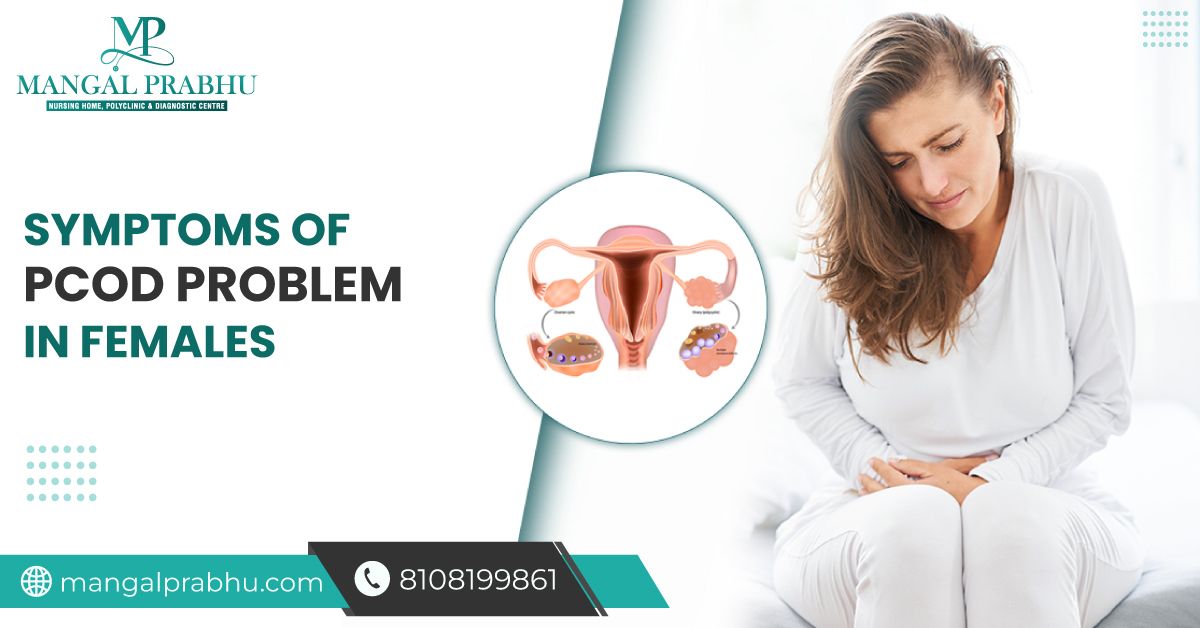
Symptoms of PCOD Problem in Females
Polycystic Ovarian Syndrome, or PCOD, occurs in women during their reproductive age. It disturbs the production of the woman’s reproductive hormones, estrogen and progesterone. Fortunately, PCOD treatment in Navi Mumbai is available for those experiencing the painful symptoms.
PCOD causes irregular periods, as the mature eggs that are supposed to be released from your ovaries once a month might not mature or get released. PCOD also occurs when there’s excess production of male hormone androgen in the woman’s reproductive system.
Symptoms of PCOD problem in females
You might notice the symptoms of PCOD when your menstruation starts, but symptoms can also show up later, i.e., in your 20s and 30s. Here are some common symptoms of Polycystic Ovarian Syndrome.
1) Irregular Periods:
The most common symptom of PCOD is irregular periods. The regular menstruation cycle is 28 days. However, if you have PCOD, you might notice your period getting delayed by ten or more days. Some women experience periods that last longer than nine days and occur frequently.
2) Infertility:
Difficulty conceiving is another symptom of PCOD. Since your periods and ovulation cycle are irregular, you might have difficulty getting pregnant.
3) Excess Androgen:
Women’s reproductive organs produce a small amount of androgen. However, those with PCOD report excess androgen production, which can lead to excessive hair fall, excess hair on the face and body, and acne.
In addition to these, PCOD can result in rapid weight gain.
Also Read: PCOD vs PCOS: Difference Between PCOD and PCOS
Causes of PCOD
The exact cause of PCOD is unknown, but the following conditions can increase your risk of developing this hormonal disorder.
i) Insulin Resistance:
If your body produces too much insulin, the level of androgen might also rise significantly, and this will affect the ability of your ovaries to release mature eggs.
ii) Heredity:
People with a family history of PCOD might develop this condition in their reproductive years. Certain genes are linked to PCOD.
Risks and Complications of Untreated PCOD
PCOD can affect your fertility. It increases the risk of inability to conceive, miscarriage, and premature birth. In pregnant women, untreated PCOD can lead to gestational diabetes and hypertension. Moreover, it can cause mental health issues, such as depression and anxiety, which are often linked to excessive weight and hair loss.
Diagnosis of PCOD
A gynecologist in Navi Mumbai will ask you about the symptoms and menstrual cycle and take a physical exam to diagnose PCOD. An ultrasound can help confirm the presence of ovarian cysts. They also recommend a blood test to check your insulin level and the overall hormonal balance.
Treatment Options for PCOD
There’s no permanent cure for PCOD, although symptoms can be managed with a balanced diet and a healthy lifestyle. Your gynecologist will prescribe medication for excessive hair growth on your body, hair loss, acne, sleep apnea, and irregular menstrual cycle. For fertility issues, a surgical procedure that removes ovarian cysts and destroys male-hormone-producing tissues can help.
Conclusion
Getting pregnant with PCOD is possible, but the condition requires treatment. Managing the symptoms, such as excessive weight and irregular periods, can help improve your quality of life and your reproductive health.
